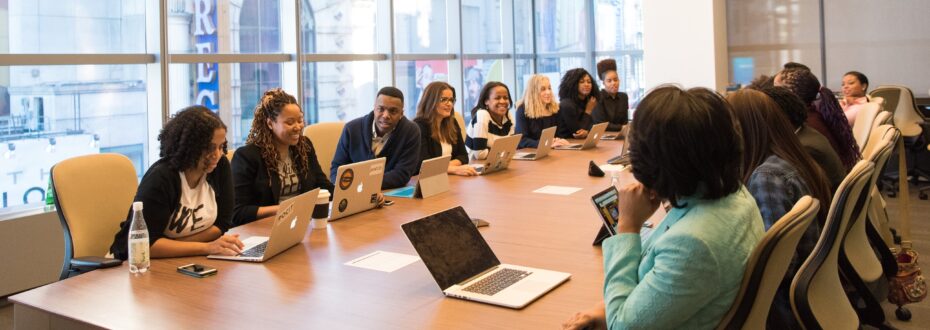Despite struggling with my mental health since I was 17, it was only three years ago that I started being open about my experiences. This significant shift in my ability to speak honestly about my mental ill-health was very much down to my workplace.
My endeavours to raise the profile of mental health, particularly in the workplace, are for a number of reasons. Firstly, we spend so much time in our workplaces and with our colleagues that it surely makes sense to ensure that those are spaces where we do not have to conceal our true selves. Importantly, we should be in environments which not only allow us to be mentally healthy, but also promote this for others. Increasingly, the lines between professional and personal lives are blurred, and the unavoidable stresses in both those elements of our lives permeate one another – so organisations have a duty to ensure that the correct support is in place when that does happen.
we spend so much time in our workplaces and with our colleagues that it surely makes sense to ensure that those are spaces where we do not have to conceal our true selves
Prior to joining the Bank of England, I felt that I was consistently surrounded by cultures (both professional and academic) where mental health was a taboo subject. The deafening silence on this topic by my peers and colleagues made it seem like everyone had perfect mental health, and that even if they didn’t, it was not an appropriate conversation to have. This meant that for six years I struggled in isolation and was terrified to seek treatment. On the rare occasions when I did find the strength to try and get through therapy, I very quickly dropped out from the weight and burden of keeping it concealed.
But aside from the personal side of this struggle, there is no doubt that an inability to be myself, or to express what I was going through, had a profound impact on my ability to perform both at university and in the workplace. On starting full time work I was very conscious that I was frequently physically present, but not mentally so – I came to work when I was unwell because I was afraid of admitting that I needed sick leave for a mental health condition, and that it was better to go through the motions for the sake of not losing my credibility.
However, I happened to join the Bank shortly before a mental health awareness initiative which involved colleagues wearing green ribbons (signifying support for ending mental health stigma). The sea of green that I saw in meetings and corridors made me realise that I was genuinely part of an organisation that cares and supports those who are struggling with mental ill-health.
there is no doubt that an inability to be myself, or to express what I was going through, had a profound impact on my ability to perform both at university and in the workplace
This was a pivotal moment for me, and I decided it was time to be open about my experiences. I also wanted to try and facilitate more people having similar positive experiences in the workplace which enabled them to be themselves and seek the help that they needed. A few months later I was chosen to be Co-Chair of the Bank’s Mental Health Network, working to ensure the continued support and inclusion of those who struggle with their mental health, or are in any way impacted by this (and so many of us are). Shortly after, I was invited to join the Commission for Equality in Mental Health, doing crucial work around the inequalities in mental health support and outcomes across society. Never having been a fan of having too much spare time, I subsequently also helped to found the City Mental Health Alliance’s Thriving from the Start Network (a cross-organisational early careers mental health network). I now sit on the Steering Committee which aims to ensure our future leaders are mental health literate and are supported as they traverse through the challenging first steps of beginning a career.
For those who are not convinced by the human case for robust mental health support in the workplace, there is always the business case. The impact of mental ill health is notoriously difficult to measure but a 2017 report by Centre for Mental Health suggests that this cost stands at nearly £35bn. The impact of sickness absence, replacing staff who leave due to ill-health and ‘presenteeism’ is astounding, but not surprising when considering the enormous effect mental health struggles can have not only on an individual but also on their friends, family and peers. I can certainly attest to that from personal experience – I know that I am now able to give much more to my job and my workplace after having been given the support that I need to cope with the times when I am unwell, and make the most of the times when I am well. And I am not a unique case – recently it has been suggested that positive wellbeing can have a measurable impact on the productivity of employees.
The impact of mental ill health is notoriously difficult to measure but a 2017 report by Centre for Mental Health suggests that this cost stands at nearly £35bn
In addition, there is a question of equality in mental health, not just more broadly in society and the services provided (as the work of the Commission focuses on), but also specifically in workplaces. As organisations increasingly understand the fundamental necessity and benefit of a diverse workforce, the need to understand that mental health cannot be approached in a ‘one size fits all’ manner also becomes crucial.
Each mental health struggle is as unique as the individual who is dealing with it, and there are studies which suggest that our background can impact the way we view mental health in the first place, as well as our approach to seeking support. In some communities, mental health challenges are still taboo subjects – creating a hesitancy to talk openly and preventing individuals from seeking help. Workplaces which truly embody inclusive values, and act tangibly to create them, need to understand how to provide support which will work for individuals. So as the conversation in workplaces around mental health progresses, we should also start thinking hard about whether the support we have accurately reflects the needs of our workforce both today, and in the future.



